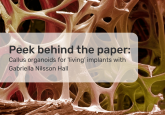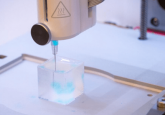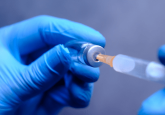4D-printed shapeshifters show potential for biomedical implants

CREDIT: Verduzco Laboratory/Rice University
Researchers from Rice University (TX, USA) have developed a 4D printing method to produce objects capable of changing shape in response to temperature changes, electric current or stress that could have applications in 4D printing implants. Researchers from Rice University (TX, USA) have developed a 4D printing method to produce objects capable of ‘shapshifting’ in response to temperature changes, electric current or stress in research that could lead to 4D printing implants. Described in ACS Applied Materials and Interfaces, the technique is referred to as ‘reactive 4D printing’ and is reported to have potential applications in biomedical implants. Having originally...





